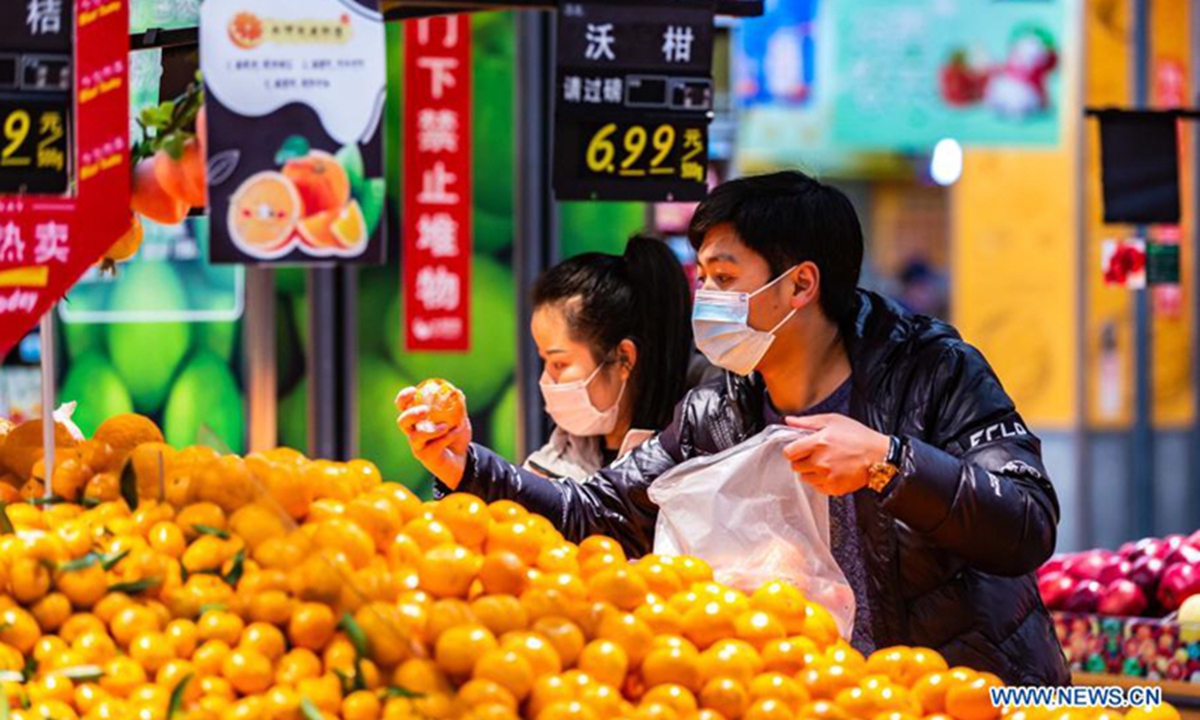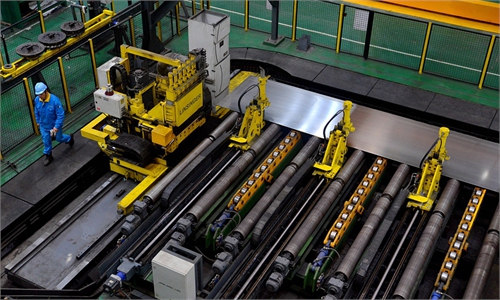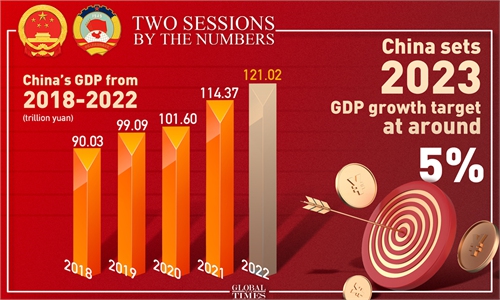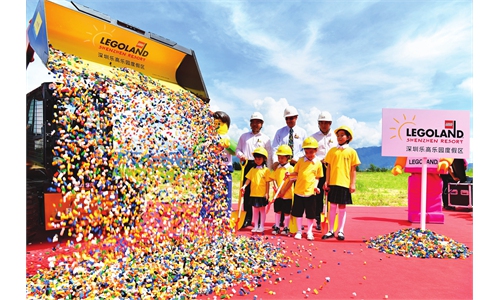
People select food at a supermarket in Xixiu District of Anshun, Southwest China's Guizhou Province. File Photo: Xinhua
The release of macroeconomic data for February has recently triggered much market discussion as to whether the Chinese economy will face an inflation or deflation threat this year.Data from the National Bureau of Statistics showed that China's consumer price index (CPI) in February was 1.0 percent higher than a year earlier, marking the slowest inflation rate in a year, while the producer price index (PPI) was down 1.4 percent year-on-year. Some believe the slowing growth in consumer inflation is an indication of the increasing deflationary pressure facing in China as the consumption demand may not be as strong as expected despite the economic recovery.
On the other side, statistics from the Chinese central bank pointed to stronger-than-expected credit growth in February. Broad money supply (M2) in February grew 12.9 percent year-on-year, the strongest pace since March 2016. There is market concern that the central bank's current monetary policy may lead to inflation in the future, while the Chinese economy is still remaining vigilant against imported inflationary pressure amid the relatively high inflation levels in the US and the EU.
It should be pointed out that it is too early to tell whether the Chinese economy is heading toward deflation or inflation just based on February's data release. Deflation refers to a general and continuous fall in prices of consumer goods and services due to weak consumer demand, and that usually happens when CPI records quarter-on-quarter declines for two consecutive quarters. By this measure, anyone who wants to play up the potential deflation in China and badmouth China's economic recovery with a single month of CPI figure may only reveal his lack of basic knowledge of economic concepts.
However, there is no denying that there are concerns over the seemingly contradictory deflation and inflation risks in the current market, which could, to a certain extent, serve as a microcosm of the complexity of China's economic landscape. The Chinese economy has actually arrived at a very important juncture, with many challenges and difficulties that require more delicate policy balance and control. If anything, how to avoid slipping into deflation or inflation could be one of the main challenges the Chinese economy needs to overcome this year.
Chinese Premier Li Qiang acknowledged at a press conference on Monday that it is "no easy task and requires redoubled efforts" to achieve the economic growth target of around 5 percent in 2023 on a high base of economic output and amid new challenges. But Li also said China's development is supported by multiple advantages, including a vast market, a complete industrial system, abundant human resources, solid foundation for development, and most importantly, notable institutional strength.
Indeed, if we shake off the so-called deflation fears, it is not hard to see that the current moderate inflation rate will allow the government more room to use various tools to boost consumption, with the view of better supporting China's economic recovery. This has become a unique advantage for China against the backdrop of high inflation levels in the West.
For instance, Li Chunlin, vice head of the National Development and Reform Commission, said at a press conference in early March that China would take further measures to promote a sustained recovery in consumption. For starters, China will introduce practical and effective policies and measures to stabilize commodity consumption, improve service consumption, and expand rural consumption so as to unleash the potential of consumer consumption. Second, China will strengthen residents' purchasing power by increasing the incomes of urban and rural residents through multiple channels, maintaining the supply and price stability of basic consumer goods. Third, China will improve and optimize the consumption environment to increase residents' willingness to consume. Fourth, China will foster new consumption growth by promoting green and new forms of consumption, supporting consumption in key areas such as housing improvement, new-energy vehicles, elderly care, education, and other areas, to further stimulate the vitality of the consumer market.
With so much policy support, it is believed that it is only a matter of time before consumption records a more remarkable recovery, and people will have a new and more accurate understanding of the Chinese economy and the Chinese government's ability to navigate it.



